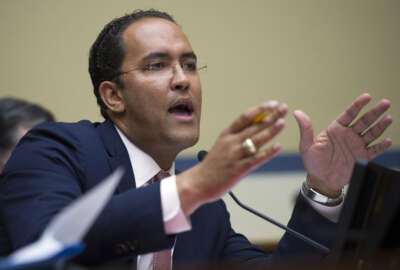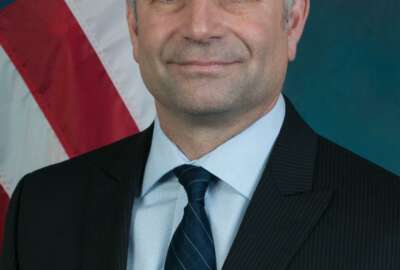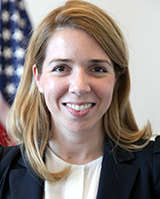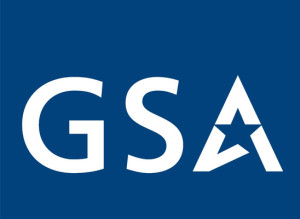
GSA’s new technology service heeds criticisms, begins to open up
Denise Turner Roth, the GSA administrator, said the agency tried to address some of the issues highlighted in a House hearing in June during a recent industry day.
The General Services Administration heard both the concerns and the interest about its new Technology Transformation Service since it launched in May.
Industry and Congress wanted to know more about the service’s goals as well as how the Presidential Innovation Fellows program, the 18F organization and the Office of Citizen Services and Innovative Technologies (OCSIT) will merge into one, and how TTS will interact with the Federal Acquisition Service.
Several of these concerns came out in a June hearing before the House Oversight and Government Reform Committee where both industry representatives and the Government Accountability Office testified about 18F and the U.S. Digital Service.
“Based on our discussions with vendors and government personnel, and on the availability of public records on their activities, there is a general lack of clarity and understanding about these programs; what they are, what they are not, and how they can be expected to operate,” said Trey Hodgkins, senior vice president for the IT Alliance for Public Sector (ITAPS), during the June 9 hearing. “This opaqueness in the operations of these programs has created a degree of uncertainty, concern and suspicion.”
This one comment underscored the reasons why GSA decided to roll out the welcome wagon around TTS, highlighting its plans for and the programs that make up the new organization on Sept. 8.
“As we developed TTS, we definitely wanted to engage industry, but the hearing itself helped to sculpt some of the questions and discussions in terms of what are the things we needed to put on the table as well as my individual conversations with members of industry as well as other feedback that we received,” said Denise Turner Roth, the GSA administrator, in an interview with Federal News Radio. “I think that with any new effort it’s important to articulate and provide a setting where individual stakeholders can come and say here’s our opinion, here are our questions and we utilize that to help formulate and improve what we are providing. Something I wanted to emphasize with this industry day is from this information it will help us in terms of sculpting what the future of the TTS looks like.”
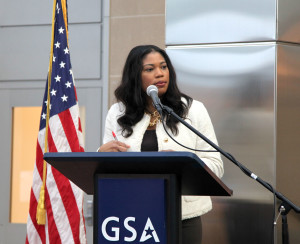
Turner Roth said she’s also met privately with lawmakers after the hearing and plans to continue the discussion.
“We are going to do demo days in which we will offer an opportunity to see and touch the work TTS and 18F are doing. It’s one thing for people to hear what we are doing, but it’s a whole another thing to see it,” she said. “It’s interesting to watch their change in understanding once they get a real sense of what that work and activity look like.”
Erica McCann, director of federal procurement for ITAPS, who attended the industry day, said she was pleased to see how GSA reacted to the criticism at the hearing.
“It seems to me that 18F has grown up in terms that it’s no longer this accessory activity happening outside of the rest of the agency,” McCann said. “They are entering year three, so it’s time to take advantage of their user experience feedback and industry feedback. I am very optimistic after the day because I thought this one was pretty exciting.”
McCann said it was especially important to hear from 18F’s customers and see the impacts their projects are having on government operations.
Turner Roth said she soon will name a new TTS commissioner and that person will go a long way toward the continued maturation of the new organization across the themes of industry day: making the government a more savvy buyer and increasing transparency and communication with industry.
She said she expects to name a new commissioner by the end of September. Phaedra Chrousos served as the first TTS commissioner before leaving in July.
“As we are building TTS, one of the things I’m very focused on as I look for a commissioner is an individual who will ensure that the five-year planning activity for TTS to be a break-even, full cost recovery organization is a solid effort, and if it can happen faster that’s just as well,” Turner Roth said. “It does mean ensuring we have the right mix of assignments that we are taking on as well as the right mix of talent, and there isn’t too much on either side. Even though there is the opportunity for fee-for-service, we have to be cognizant that what we deliver is something that our customers will buy, otherwise we shouldn’t be offering it.”
GSA Chief Information Officer David Shive has been acting TTS commissioner since Chrousos left.
The cost recovery challenge came up at the June hearing as well when the Government Accountability Office reported 18F wouldn’t pay back its $30 million in start-up funding until at least 2019.
Turner Roth said GSA reviews the fee structure at least annually during the close out of the fiscal year.
As for delivering services agencies need, Turner Roth said part of the reason GSA launched TTS was to fill a gap in the federal market.
“I believe we have the resources we need and we can continue to attract the talent that we need,” she said. “When I looked across the federal government what I didn’t see was anyone who necessarily owned the role of understanding where technology changes were happening across the industry and bringing that back into government. GSA plays that role of being the integrator and providing the best learning as well as the best opportunities for our agencies. At GSA, we are trying to build that muscle so that agencies have that to benefit from.”
During the industry day, GSA offered overviews of several of those efforts, including the Login.gov, cloud.gov and the 18F acquisition services initiatives.
“We believe in order for us to be successful, industry has to be a strong partner in our effort,” Turner Roth said. “At the end of the day, our goal is to connect our federal agency partners with the best tools and resources from the private sector, whether it’s staff, people or products.”
McCann said having industry in the room to hear more about 18F’s projects helped expand the transparency and set expectations of the type of things TTS will do in the future.
“The transparency piece was one of our biggest criticisms, because we just didn’t know what they were doing, so the fact they are out there talking to industry was a big step,” she said.
Turner Roth said TTS will continue to increase the level of engagement across industry and the government. She said more face-to-face interactions — whether virtual or in person — will help TTS communicate its plans and programs more effectively.
She said creating settings where GSA has “directed” conversations with industry are the types of interactions TTS is considering.
Copyright © 2025 Federal News Network. All rights reserved. This website is not intended for users located within the European Economic Area.
Jason Miller is executive editor of Federal News Network and directs news coverage on the people, policy and programs of the federal government.
Follow @jmillerWFED




